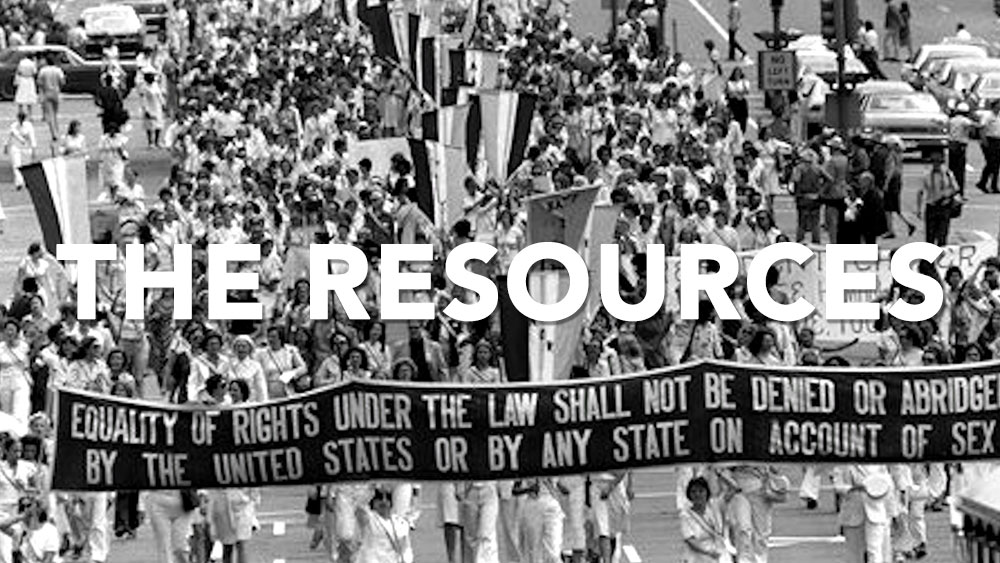


Ninety-six percent of Americans believe women and men should be guaranteed equality in constitution, according to one survey. More astounding? Seventy-two percent believe it already does.
But it doesn’t. Although parts of the Constitution, for instance the Equal Protection Clause of the 14th Amendment, may appear to safeguard women against discrimination, Supreme Court Justice Antonin Scalia has gone on record insisting this isn’t the case.” Certainly the Constitution does not require discrimination on the basis of sex, the only issue is whether it prohibits it. It doesn’t,” he said in the January 2011 issue of California Lawyer. “Nobody ever voted for that.”
Note: the only folks voting in 1868 when the 14th Amendment passed were white men.
There are other laws on the books designed to protect women: The Pregnancy Discrimination Act, The Equal Pay Act, Titles 9 and 7. Yet even so, how various courts interpret such laws and with loopholes that exist, pregnant women continue to be discriminated against, and women and men still don’t receive equal pay. A given law many not carry a stiff enough penalty, leading individuals and corporations to ignore them. Finally, laws and statutes can be overturned. Women’s civil and human rights are subject to change with political cycles.
That said, there is good news. When Patricia Arquette, during her Oscar acceptance speech, gave the rallying cry, “Equal means equal,” one of those who heard her was California State Senator Hannah-Beth Jackson. For months Jackson had been working on a bill to strengthen California’s equal pay laws. She rushed to take advantage of the enthusiasm Arquette’s words inspired and introduced her bill two days later. The same year Gov. Jerry Brown signed it into law.
California’s new Equal Pay Act has been dubbed the toughest wage law in the country. It requires that male and female employees who perform “substantially similar” work receive the same salary, regardless of their job title or work location. Previously, the law ensured equal pay only for “equal” work, meaning that a plaintiff had to hold the exact same job to make a claim. Now a female maid who cleans hotel rooms, may challenge the higher wages paid to a male janitor who maintains the hallways, even though their job titles are different. The law also includes an anti-retaliation clause, allowing employees to ask about and discuss co-workers’ wages without fear of punishment.
But should equality be handed out on a state-by-state basis? Or should freedom from discrimination not be dependent upon one’s location, or luck? Proponents of the Equal Rights Amendment argue that it will provide a legal foundation and a national standard.
Women are the majority, i.e. 51 percent of the country’s population, yet they hold only 20 percent of Senate seats and 19 percent of Congress. By comparison, women in Rwanda make up 38.5 percent of its Senate and nearly 64 percent of its lower house. More women hold political office in such countries as Bolivia, Sweden, Senegal, Finland, Ecuador, South Africa and dozens of others.
If we continue to vote women into office at the current rate, women will not have an equal share of seats in Congress until 2117.
Over the past 50 years, 52 countries have had a female head of state. We’re still waiting.



THE FACTS
Percentage of Americans who believe the Constitution should guarantee equal rights for women: 96
Percentage of Americans who believe the Constitution already does guarantee equal rights: 72
Survey conducted by Opinion Research Corporation for the Equal Rights Amendment CampaignFortune
Number of states required to pass the Equal Rights Amendment: 38
Number of states that ratified ERA in first year 1972–1973: 30
Number of states that ratified ERA by deadline in 1982: 35
Equalrightsamendment.org
Which States Ratified the ERA in the First Year
THE EXPERTS
Linda Wharton
Professor of Law and Political Science
Former Managing Attorney – Women’s Law Project
Kevin Noble Maillard
Professor of Law – Syracuse University
Jennifer Reisch
Legal Director – Equal Rights Advocates
On team of attorneys taking on case of Betty Dukes
Eleanor Smeal
Co-Founder and President – Feminist Majority
Ellen Chesler
Senior Fellow – Roosevelt Institute
Dr. Martha Burk
Co-Founder – The Center for Advancement of Public Policy
Lisa Maatz
Lead Policy Advisor – American Association of University Women
THE RESOURCES
Equal Rights Advocates
equalrights.org
(800) 839-4372
Institute for Women’s Policy Research
iwpr.org
(202) 785-5100
Legal Momentum
legalmomentum.org
(212) 925-6635
ERA Coalition
eracoalition.org
